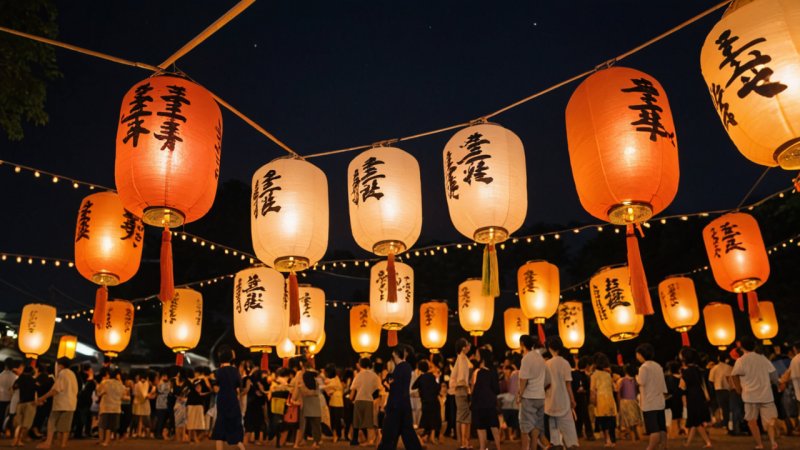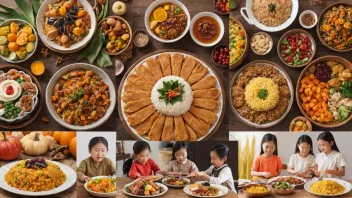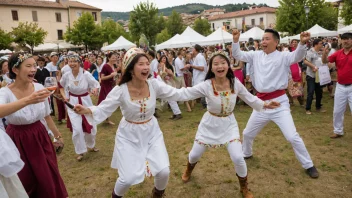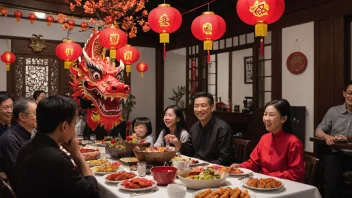The Festival of the Spirits, or Obon, is a deeply rooted cultural tradition in Japan that honors the spirits of ancestors. Celebrated annually, this festival is a time for families to come together, pay homage to their ancestors, and reflect on the life and death cycle. Here are some key highlights and recommendations to understand the historical significance of this unique festival.
1. Understanding Obon: The Essence of the Festival
Obon is not just a festival; it is a period when the living and the dead come together. It is believed that during this time, the spirits of ancestors return to the earthly realm to visit their families. Traditionally, this festival lasts for three days and includes various rituals that convey respect and remembrance.
2. The Lantern Ceremony
One of the most iconic elements of Obon is the lantern ceremony, known as Toro Nagashi. During this event, paper lanterns are floated on rivers and seas as a way to guide the spirits home. This beautiful sight symbolizes the connection between the living and the deceased.
3. Bon Odori: The Dance of the Spirits
Bon Odori is a traditional dance performed during the festival, reflecting joy and gratitude for the spirits' return. It varies from region to region, each featuring unique styles and music. Participating in Bon Odori is a great way to immerse oneself in the local culture and connect with the community.
4. Family Gatherings and Feasts
Obon is a time for family reunions, where loved ones come together to share meals and memories. Families prepare special dishes, including seasonal fruits, vegetables, and traditional sweets to honor their ancestors. This aspect of the festival emphasizes the importance of family ties and remembrance.
5. Visiting Graves: A Mark of Respect
Another crucial aspect of Obon is the practice of visiting and cleaning the graves of ancestors. Families gather at cemeteries to pay their respects, offering food, incense, and flowers. This ritual highlights the cultural significance of honoring those who came before us.
6. Festivals Across Japan: A Regional Perspective
Different regions in Japan celebrate Obon in unique ways, showcasing local customs and traditions. From the vibrant Gion Festival in Kyoto to the lively Awa Odori in Tokushima, experiencing these regional variations can enhance one's understanding of the festival's cultural significance.
7. Spiritual Reflection: A Time for Meditation
Obon is also a time for personal reflection and meditation. Many people take this opportunity to ponder the cycle of life and death, the impact of their ancestors, and the legacy they wish to leave behind. This spiritual aspect makes the festival a profound experience for many.
8. The Role of Buddhism and Shintoism
The festival's roots are deeply intertwined with Buddhism and Shinto beliefs. Understanding these religious influences can provide a richer context for the rituals and practices observed during Obon, allowing for a more profound appreciation of its significance.
9. The Modern Adaptation of Obon
As Japan becomes increasingly modernized, Obon has adapted to contemporary society while retaining its core values. Many urban areas now celebrate the festival with fireworks, street performances, and cultural exhibitions, bridging the gap between tradition and modernity.
10. Participating in Obon: A Visitor's Guide
If you plan to visit Japan during Obon, participating in local festivities can be a rewarding experience. Respect local customs, learn a few Bon Odori steps, and be sure to join in the communal meals. Engaging with locals will provide insight into the significance of this festival and create lasting memories.
In conclusion, the Festival of the Spirits in Japan, or Obon, is a significant cultural event that emphasizes respect for ancestors, family unity, and spiritual reflection. Whether through the lantern ceremonies, family gatherings, or regional celebrations, this festival offers a unique glimpse into Japanese traditions and values. By understanding its historical significance, visitors can appreciate the depth of this beautiful celebration.






